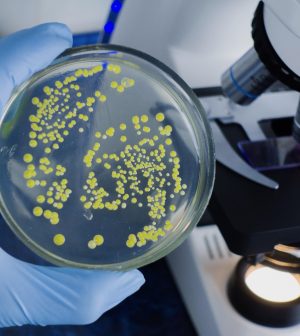- Could Your Grocery Store Meat Be Causing Recurring UTIs?
- Are You Making This Expensive Thermostat Error This Winter?
- Recognizing the Signs of Hypothyroidism
- 10 Strategies to Overcome Insomnia
- Could Artificial Sweeteners Be Aging the Brain Faster?
- Techniques for Soothing Your Nervous System
- Does the Water in Your House Smell Funny? Here’s Why
- Can a Daily Dose of Apple Cider Vinegar Actually Aid Weight Loss?
- 6 Health Beverages That Can Actually Spike Your Blood Sugar
- Treatment Options for Social Anxiety Disorder
Deadly Strep Bacteria Is Spreading in Japan

A deadly bacterial infection known as streptococcal toxic shock syndrome (STSS) is spreading across Japan, officials in that country report.
In March, Japan’s National Institute of Infectious Diseases issued its first warning that STSS cases were on the rise. As of June 2, Japan’s health ministry has reported 977 cases for 2024 — a count that already surpasses last year’s total of 941 cases.
That’s also nearly two and a half times the number of cases reported in the United States so far this year: 395 cases have been reported, not far off from the 390 seen at this time last year.
The disease is nothing to trifle with: STSS can “develop very quickly into a life-threatening emergency,” according to the U.S. Centers for Disease Control and Prevention.
First symptoms of STSS often include fever, chills, muscle aches, nausea and vomiting, according to the CDC. After 24 to 48 hours, low blood pressure typically develops and can cause more serious issues, including organ failure, increased heart rate and rapid breathing.
“Even with treatment, STSS can be deadly. Out of 10 people with STSS, as many as 3 people will die from the infection,” the CDC stated.
STSS is caused by toxins released by Streptococcus pyogenes, also known as Group A Streptococcus (GAS), which commonly cause sore throat and skin infections, said Dr. Céline Gounder, an infectious diseases expert and CBS News medical contributor.
“Less commonly, GAS causes infection in the blood, lungs, as well as ‘flesh-eating’ infections,” Gounder told CBS News.
It is not yet understood why these severe infections are becoming more common, but there are ways to help prevent getting sick in the first place, experts said.
“Because chickenpox and influenza are risk factors for severe GAS infection, vaccination against varicella zoster virus and influenza can reduce the risk of severe GAS infection,” Gounder noted. “People who have been in close contact with someone with severe GAS infection and who are immunocompromised, pregnant or have open wounds should be given antibiotics to prevent infection.”
Certain risk factors can increase your risk, the CDC said, including:
-
Age: It’s most common in adults 65 or older
-
Infections or injuries that break the skin
-
Other health issues, including diabetes and alcohol use disorder
Since late 2022, multiple countries have seen spikes in GAS cases, including the United Kingdom, Ireland, France, the Netherlands and Sweden, according to the World Health Organization.
“Outbreaks like these speak to the need for ongoing infectious disease surveillance and control, not only in the United States, but around the world,” Gounder said.
More information
The CDC has more on STSS.
SOURCES: Japan’s National Institute of Infectious Diseases, health advisory, March 29, 2024; CBS News
Source: HealthDay
Copyright © 2026 HealthDay. All rights reserved.










